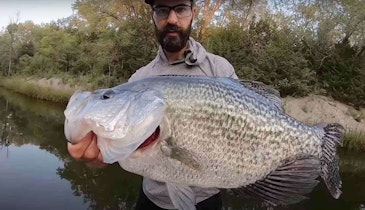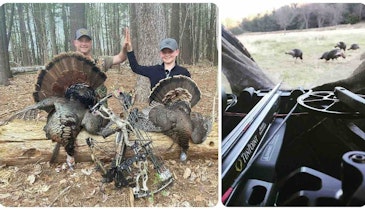The U.S. Fish and Wildlife Service (FWS) published its final rule on predator harvests on wildlife refuges in Alaska this week, with wildlife managers saying the move violates a 1980s law that gave the state authority to manage wildlife there.
Etta Pettyjohn of OutdoorWire.com reports that a longstanding tradition between state and federal wildlife officials partnering on wildlife management turned to state officials saying recent actions cater to outside groups like the Humane Society (USHS) and environmental groups at the expense of the people relying on the resource.
The rule, according to OutdoorWire.com, prohibits taking black or brown bear cubs or sows with cubs, taking brown bears over bait, taking bears using traps or snares, taking wolves and coyotes from May 1 to Aug. 9 and taking bears from an aircraft or on the same day as air travel has occurred.
These are restrictions are similar to those the National Park Service (NPS) — under the Department of the Interior – placed on national park lands there in 2015.
OutdoorWire.com reports the FWS manages 16 national wildlife refuges, totaling 73 million acres, and the NPS oversees 24 national parks, totaling 54 million acres of land in Alaska — meaning than 60 percent of all land managed by the NPS is in the The Last Frontier.
FWS director Dan Ashe released a statement about the latest ruling, saying, “In response to public interest and concern about predator harvests on national wildlife refuges across Alaska. He added, "to clarify that predator control is not allowed on national wildlife refuges in the state unless based on sound science and in response to a conservation concern, or is necessary to meet refuge purposes, federal laws or FWS policy.”
When asked, OutdoorWire.com reports, officials with the FWS provided only one example of “sound science,” overruling state regulations on a refuge — the temporary closure of Kenai refuge's bear hunt in response to liberalizations of brown bear hunting by the Alaska Board of Game (BOG).
However, Bruce Dale, director of the FWS's division of wildlife, said it was “alarming” the FWS would use that as an example.
“We had not even used that location for predator control,” said Dale, according to OutdoorWire.com reports. He added the agency had liberalized harvests in that location due to conflicts between bears and humans. The move resulted in a small decrease in bear population, which has since rebounded.
In the 1990s the state legislature adopted the Intensive Management Law, requiring the Alaska Board of Game (BOG) to identify moose, caribou and deer as important food sources, and to protect these in numbers to allow for adequate and sustained harvest for both tribal entities and game hunters, OutdoorWire.com reports.
If population drops below what is needed for continued harvests, the Alaska Department of Fish and Game (ADFG) will undertake intensive management to investigate and increase numbers using season restrictions and bag limits, improving habitat, liberalizing harvest of predators, and predator control.
OutdoorWire.com reports wildlife managers say the new rule “harshly restricts the ability of Alaskans to feed themselves through responsible and sustainable harvest” and is “wholly inconsistent with what the Alaska National Interest Lands Conservation Act of 1980 promised (Alaskans), which gave the state wildlife management authority on state, private and federal lands.”
Mitch Ellis, FWS regional chief of refuges for the Alaska Region, rebuttals that in the last decade the ADFG had changed its policies and practices to increase control efforts for predator populations, and the FWS was responding to this by clarifying its own, according to the site.
“They have a different mandate than we do,” he said. “We are mandated by Congress to manage these refuges for diversity and make sure the biological integrity is intact, while the state has shifted its policies to create more animals to harvest.”
In a column for the Huffington Post Ashe called the predator control practices unethical and based on flawed science about predator-prey relationships.
"Over the past several years the Alaska BOG has unleashed a withering attack on bears and wolves that is wholly at odds with America's long tradition of ethical, sportsmanlike, fair-chase hunting,” the column reads.
“There comes a time when the FWS must stand up for the authorities and principles that underpin our work and say ‘no.’”
The website reports Dale said the AGFD “strongly opposes the erosion of state's rights to manage wildlife. The users who rely on these resources for sustenance will be the ones affected most.”
The new regulations will become effective 30 days after publication in the Federal Register, OutdoorWire.com reports.






